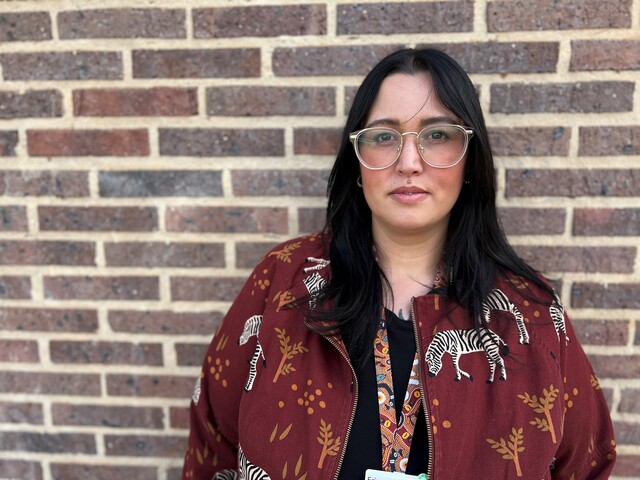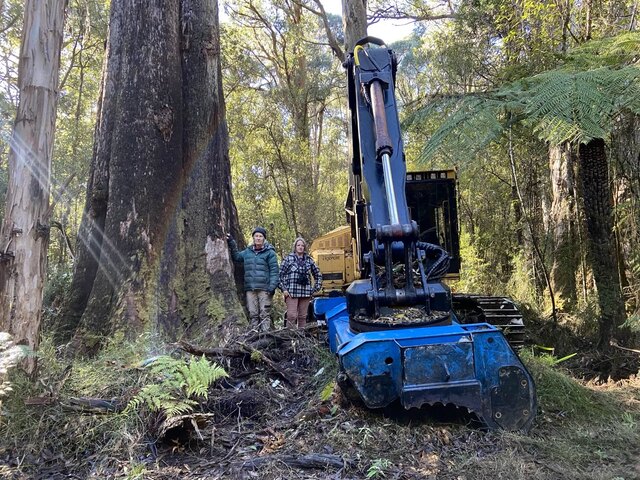Local homelessness support service Anchor Community Care is reporting a concerning rise in reports of rough sleepers, highlighting the need to address pressures facing residents.
There was a 240 per cent rise in reports in 2024/25, made either directly to Anchor or via Yarra Ranges Council’s portal.
Anchor crisis response worker Erin said Anchor are very concerned about the growing number of individuals and families rough sleeping.
“We see this as an urgent emergency, and continue to advocate for more funding and support options to ensure that people are able to get out of these situations as quickly as possible,” she said.
“On top of the rise in rough sleeper reports last year, we have also experienced a slow down in our ability to place people in accommodation. This is a recipe for disaster, and goes to explaining why rough sleeping is becoming more prevalent in the community,”
“In a more positive light, the rise in reports suggest more community members are taking time to get help for rough sleepers when they encounter them in the community.”
A total of 83 men, 36 women, 27 children and 45 pets were reported rough sleeping over that year, though this data includes instances where multiple reports are made about the same person.
Erin said there is simply not enough affordable housing, including social, community and public housing to meet the increasing demand.
“We have seen growing numbers of families with young children in tents, and working families that have been priced out of the rental market, we have also seen a rise in individuals over the age of 55 rough sleeping in our area,” she said.
“The housing crisis sees working families unable to secure a private rental and falling into homelessness, which is not something we have previously seen at such rates,”
“The rising cost of living means people on government assistance are priced out of the rental market entirely, some of our clients have been spending close to 80 per cent of their income on rent/accommodation alone.”
The Rapid Response program is a partnership with Yarra Ranges Council and Ngwala Willumbong.
A Yarra Ranges Council spokesperson said homelessness continues to be a significant and growing issue in the Yarra Ranges.
“The combination of cost of living pressures, low social housing stock, and the lack of enough affordable rental properties in our region, among many other issues, contribute to increases in rough sleeping and homelessness,” they said.
“It’s crucial to remember that everyone, no matter their current housing or work situation, can be a major life change away from homelessness,”
“Which is why we need the State Government to increase funding and support to the community organisations locally that help people at risk of, or experiencing, homelessness.”
When a report of a rough sleeping location is made by a concerned community member or even rough sleepers themselves, it is sent to Anchor’s outreach team who can provide a holistic health response, explore housing options, provide material aid and link in with other vital services.
Erin said frontline workers such as herself are placed under pressure with increased crisis line phone calls, increased presentations, increased reports that are attended via outreach, with decreasing access to resources.
“Everyone experiencing homelessness deserves somewhere safe to sleep, and a roof over their head, it’s a basic human right,” she said.
“Due to homelessness services being under resourced and underfunded, sometimes all we can offer is fresh clean bedding, a tent, material aid like food, assistance with links to services like health, and mental health,”
“Specialist Homelessness Services like Anchor do not have access to housing, our role is to provide information advocacy and support to people experiencing homelessness to navigate the homelessness system.”
According to Australian Institute of Health and Welfare data, individuals who are experiencing homelessness have a life expectancy of 46 years and around a quarter of the people who die young as a result of rough sleeping are less than 25 years old.
Erin said the mental health toll of homelessness is enormous, living in fear, stuck in fight or flight mode and constantly needing to be aware of your surroundings.
“Long term rough sleeping has significant impacts on individuals, they experience declining health at rates well above the average population,” she said.
“Unsafe living environments cause injuries and drive chronic illnesses and there is an increased risk of assaults,”
“It’s vital that more is done to stop this trend.”
Friday 10 October also marks World Homelessness Day, bringing awareness to the plight of people experiencing homelessness internationally.
Erin said homelessness services are stretched thin with access to limited resources but the majority of people in the Yarra Ranges are very empathetic, generous and community minded.
“The reality is, without major change, without building more social housing, without affordable homes for low-income households, without more funding for assertive rough sleeper outreach we will continue to see homelessness increase,” she said.
“People will occasionally make Facebook community posts on the Yarra Valley Noticeboard or Yarra Ranges Noticeboard trying to get help for people they encounter sleeping rough, the outpouring of goodwill and support on these posts is really positive to see.”
“We just want to stress the importance of people knowing to make a report so that our Rapid Response team can assist rough sleepers, our team will head out, make contact with someone sleeping rough, assess what their needs are, provide basic necessities and actively support them to access services and supports.”
Residents can alert Anchor’s Rapid Response team that support is needed by heading to the Yarra Ranges Council website: au.openforms.com/Form/e1ceadda-db00-4af5-974c-f84c901d40db
The council spokesperson said they’ll be advocating to the State Government and Opposition on these and other issues ahead of next year’s state election.
“We’d love to see the State Government provide more social housing properties in Yarra Ranges as part of their Big Housing Build while Council is also looking at policy and partnership pathways to encourage development of more affordable and diverse housing locally,” they said.







